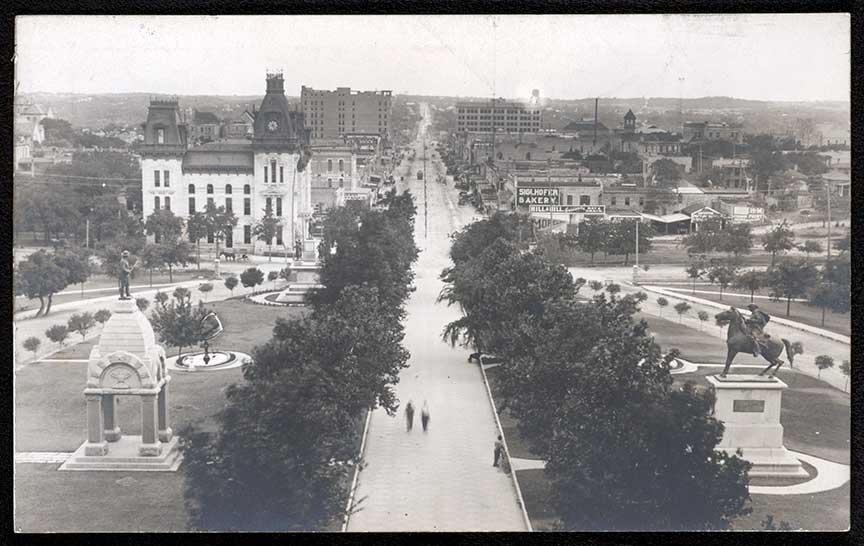The History of Medical Care in Austin

Austin, Texas, known for its vibrant music scene and thriving tech industry, boasts a rich history of innovation and creativity. Beyond its well-known attributes, Austin has been the birthplace of remarkable inventions and successful businesses that have left an indelible mark on various industries.
From the creation of iconic tech giants to groundbreaking advancements in healthcare and medicine, Austin's innovative spirit extends far beyond its musical roots. In particular, Austin's healthcare landscape has witnessed pioneering breakthroughs, making it a hub for medical innovation and cutting-edge research.
Within Austin, there are more than four dozen high-quality hospitals, giving the city one of the highest doctor-patient ratios in the state. In addition to the expansive hospital systems, more than 5,000 individual healthcare providers work in Austin.
Brackenridge Hospital Opens
From the city’s inception, the medical field has played an important role. Austin’s first public hospital opened its doors in 1884, nearly 40 years after Texas entered statehood. The hospital was eventually renamed the Brackenridge Hospital after Dr. Robert J. Brackenridge who helped raise funds for the new hospital building.
In addition to being the first hospital, Brackenridge was home to many other significant firsts. Austin’s first nursing school was located in Brackenridge.
In 1948, Brackenridge doctors performed the first neurosurgery in 1948. Over the following decades, Brackenridge was the site of the city’s first open-heart surgery and full-fledged cardiology unit.
Austin’s oldest hospital continues to pave the way for innovation. In 2009, it was the first healthcare institution to classify as a Level I Trauma Center, which provides a full spectrum of injury care.
Much of Austin’s impressive medical history is enshrined at the History of Medicine Gallery. The Gallery tells the story of the Texas Medical Association, which has practiced healthcare since the mid-19th century. Visitors to the Medicine Gallery can peruse vintage medical tools, historic photographs, and physician’s notes.
Teaching Hospitals and Medical Schools
Beyond Brackenridge, Austin hosts many of the country’s most prestigious teaching hospitals and medical schools. The University of Texas at Austin encompasses Dell Medical School. Medical students and post-graduate researchers conduct innovative studies in more than 200 subject areas, including mental health, biomedical science, and new medical technologies. The Dell Children’s Medical Center is one of the premier providers of children and adolescent medicine.
Other notable hospital systems in Austin include the Seton Medical Center, one of the highest-ranking medical systems in the region. Seton houses the only heart transplant center in Central Texas, as well as general care and multiple subspecialties.
MD Anderson Cancer Center Expansion Planned for 2026
Austin’s academic healthcare ecosystem will soon expand. The University of Texas recently announced several construction projects, including an extension of the world-class MD Anderson Cancer Center.
The MD Anderson Center, currently headquartered in Houston, is one of the most renowned cancer treatment centers in the world. In 2024, the Center earned the top spot on Newsweek’s list of Best Specialized Oncology Hospitals. In recent years, the Anderson Center has received more than $10 million in funding to investigate breakthrough treatments for ovarian and pancreatic cancers. The Austin Anderson Center branch is slated to open by 2026.
Healthcare Corporations Thrive in Today’s Business Climate
Austin’s business-friendly environment has also inspired some of the largest corporations in the healthcare space to place their headquarters in the city limits. Austin’s vibrant health sector includes some of the biggest names in pharmaceuticals, medical device manufacturers, women’s health, insurance providers, and healthcare groups.
Some notable companies include CVS Health, Optum, and UnitedHealth Group. Austin also attracts promising start-ups, primed to disrupt and improve the healthcare industry, such as the at-home diagnostics provider, Everlywell.
Between 2019 and 2023, Austin’s life science and medical research sector expanded by nearly 75%. Companies are flocking to the city to capitalize on the abundance of educated medical graduates and research facilities.
In an effort to attract even more burgeoning companies to the city, the Austin City Council greenlighted a community plan to develop a subdistrict dedicated to this growing industry.
With renowned medical institutions, research centers, and a culture of innovation, Austin has been at the forefront of healthcare breakthroughs. The city's commitment to collaboration between academia, industry, and healthcare providers has fostered an environment conducive to groundbreaking research and development.
From pioneering medical technologies to innovative approaches in healthcare delivery, Austin has consistently pushed the boundaries of what is possible. As the city continues to attract top talent, nurture startups, and foster partnerships, its healthcare industry is poised for a bright and promising future, driving advancements that will benefit patients locally and globally.
 >
>